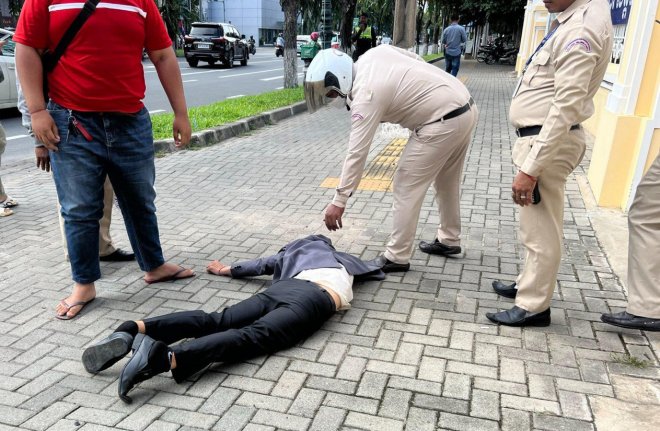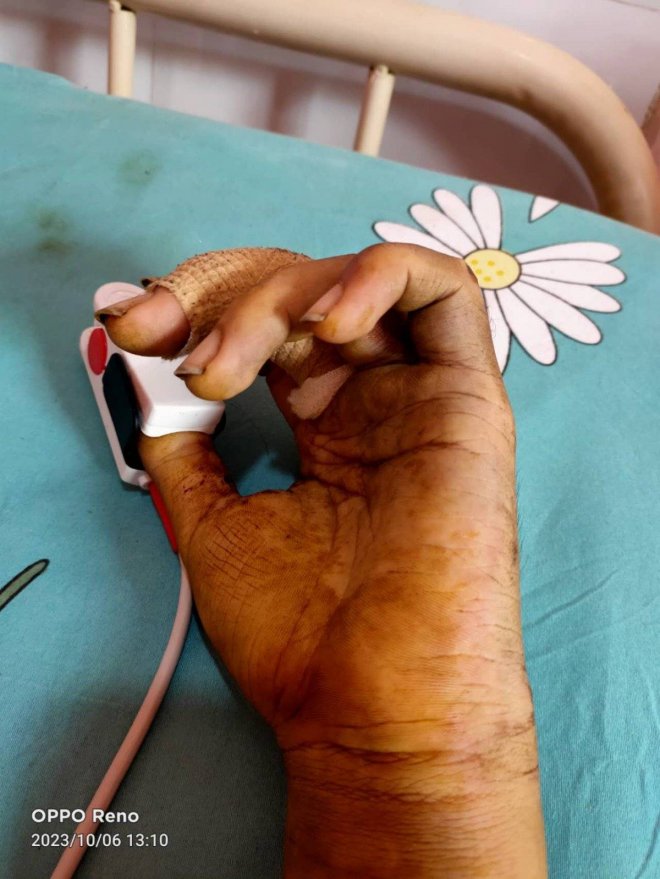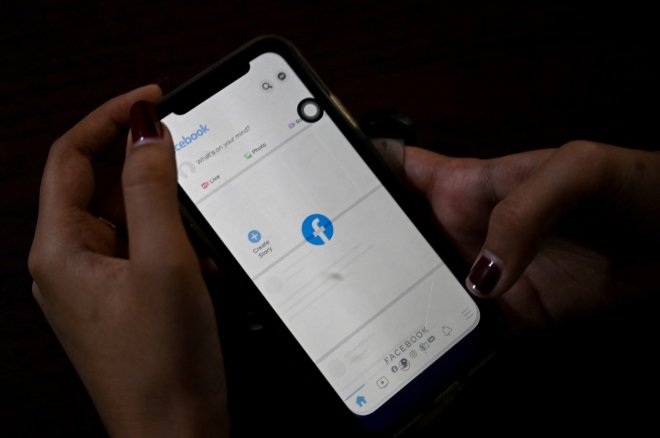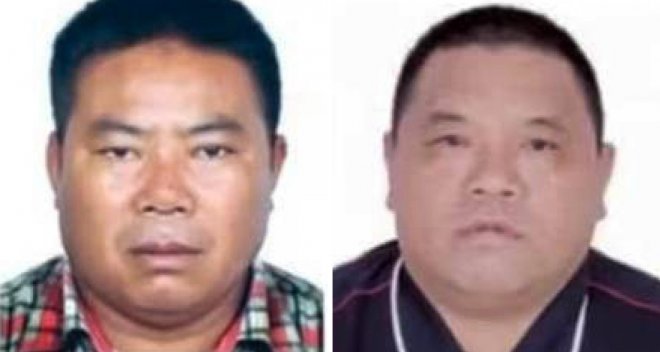Fears grow for mainland Chinese activist deported from Hong Kong
Concerns are growing for the safety of Zeng Yuxuan, a doctoral student from mainland China found in possession of posters depicting the "Pillar of Shame" sculpture commemorating the Tiananmen massacre, who was forcibly repatriated by the Hong Kong authorities after serving six months in jail under colonial-era sedition laws.
Zeng was sentenced to six months" imprisonment on Sept. 12 after being convicted of conspiring with U.S.-based democracy activist Zhou Fengsuo to "commit acts with seditious intent" ahead of the June 4 massacre anniversary, sending shock waves through the growing community of mainland Chinese who have made Hong Kong their home.
She had already served nearly all of that time in pretrial detention, and was due to be released on Oct. 12, according to a friend who gave only the pseudonym Chen Mei.
But when a group of her friends went to the prison gates at 9 a.m. that day to meet her, she never emerged, Chen said.
The Hong Kong government told local reporters at around 6 p.m. that Zeng has been sent back to China.
![]() Zeng Yuxuan’s last Instagram posts include a photo of jailed Hong Kong rights lawyer and Tiananmen vigil organizer Chow Hang-tung, as well as satirical remarks about Xi Jinping"s indefinite third term in office. Credit: RFA screenshot
Zeng Yuxuan’s last Instagram posts include a photo of jailed Hong Kong rights lawyer and Tiananmen vigil organizer Chow Hang-tung, as well as satirical remarks about Xi Jinping"s indefinite third term in office. Credit: RFA screenshot
Another friend received a text message from Zeng on Oct. 12 saying she was in Shenzhen, but she has been incommunicado since then, Chen said.
"I"m really worried about where she may be," Chen said. "She should be at liberty, now that she has served her sentence in accordance with the law of Hong Kong."
"There"s no information about her at all – we have no news," she said. "We don"t know what kind of inhumane treatment she will encounter."
Chen said part of the concerns rest on the kind of content that Zeng had posted on Instagram shortly before her arrest, which could mean she will face a second prosecution when she gets back to China.
Her last Instagram posts included a photo of jailed Hong Kong rights lawyer and Tiananmen vigil organizer Chow Hang-tung, emblazoned with the words "Love is Faith," as well as satirical remarks about ruling Chinese Communist Party leader Xi Jinping"s indefinite third term in office.
A ‘sensitive’ person
Current affairs commentator Johnny Lau said the mainland Chinese authorities are likely to regard Zeng as a "sensitive" person, and said it is unlikely she will be at liberty on her return.
"Such things aren"t handled rationally," Lau said. "They talk about rule of law, but the law is there to serve [the government], and things are handled based on its requirements."
"They want to scare others away from doing similar things in future," he said.
Zeng was the first mainland Chinese person to be convicted of sedition under an ongoing crackdown on public dissent that has seen senior journalists, pro-democracy media magnate Jimmy Lai and 47 former lawmakers and democracy activists charged with offenses from "collusion with a foreign power" to "subversion."
Before her arrest, she had taken part in the "white paper" protests against the stringent restrictions of the zero-COVID policy in November 2022.
But the action that prompted her prosecution by the Hong Kong authorities was her public commemoration of the death of Leung Kin-fai, who committed suicide after nonfatally stabbing a police officer outside the Sogo Department Store on July 1, 2021, in an attack described as "terrorism" by police at the time.
![]() A police officer takes photos at the site where Leung Kin-fai stabbed a police officer in Causeway Bay in Hong Kong, July 1, 2021. Credit: Tyrone Siu/Reuters
A police officer takes photos at the site where Leung Kin-fai stabbed a police officer in Causeway Bay in Hong Kong, July 1, 2021. Credit: Tyrone Siu/Reuters![]()
Zeng isn"t the only person to be prosecuted for supporting Leung in public.
On Sept. 11, four former University of Hong Kong students pleaded guilty to "incitement to wound with intent" after they publicly praised Leung"s action, according to Hong Kong court reporting service The Witness. They had earlier been accused of "glorifying terrorism," but the terrorism-related charges were dropped.
Kinson Cheung, Charles Kwok, Chris Todorovski and Anthony Yung, who are aged between 21 and 22, were arrested in 2021 after they took part in a student union meeting that passed a motion of sympathy for Leung, a move that was denounced in the pro-China press and by then leader Carrie Lam.
Since the 2019 protest movement, police have made more than 1,000 arrests under a draconian national security law, with thousands of protest movement supporters also targeted under colonial-era public order and sedition laws.
Participating in protests
Like many defendants keen to avoid months or even years of pretrial detention with no bail, Zeng pleaded guilty to "attempting to commit or preparing to commit one or more acts with seditious intent."
In an interview recorded before her second arrest, Zeng told Radio Free Asia that she was inspired by her first glimpse of the 2019 protests, which came when her law lecturer at a mainland Chinese university used a virtual private network, or VPN, to circumvent the Great Firewall of government censorship and show the class live footage of protesters occupying Hong Kong"s Legislative Council chamber on July 1, 2019.
She later applied to study in Hong Kong, and started keeping up with political developments there, as well as doing some in-depth reading on overseas websites about the 1989 Tiananmen massacre that ended weeks of student-led democracy protests in Beijing and other major cities.
She arrived in Hong Kong as Peng Lifa was staging his explosive banner protest on Beijing"s Sitong Bridge, ahead of the party congress, and eagerly embraced the "white paper" movement that followed.
By New Year"s Day 2023, Zeng had been arrested for taking part in a public commemoration of Leung Kin-fai, and the police in China were already in touch with her parents.
Zeng appeared fearless at her trial, wearing a sweatshirt with a Winnie-the-Pooh motif, in an apparent sideswipe at ruling Chinese Communist Party leader Xi Jinping, who is said to resemble the fictional bear.
Translated by Luisetta Mudie.
Zeng was sentenced to six months" imprisonment on Sept. 12 after being convicted of conspiring with U.S.-based democracy activist Zhou Fengsuo to "commit acts with seditious intent" ahead of the June 4 massacre anniversary, sending shock waves through the growing community of mainland Chinese who have made Hong Kong their home.
She had already served nearly all of that time in pretrial detention, and was due to be released on Oct. 12, according to a friend who gave only the pseudonym Chen Mei.
But when a group of her friends went to the prison gates at 9 a.m. that day to meet her, she never emerged, Chen said.
The Hong Kong government told local reporters at around 6 p.m. that Zeng has been sent back to China.
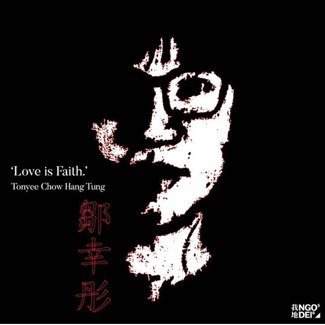 Zeng Yuxuan’s last Instagram posts include a photo of jailed Hong Kong rights lawyer and Tiananmen vigil organizer Chow Hang-tung, as well as satirical remarks about Xi Jinping"s indefinite third term in office. Credit: RFA screenshot
Zeng Yuxuan’s last Instagram posts include a photo of jailed Hong Kong rights lawyer and Tiananmen vigil organizer Chow Hang-tung, as well as satirical remarks about Xi Jinping"s indefinite third term in office. Credit: RFA screenshotAnother friend received a text message from Zeng on Oct. 12 saying she was in Shenzhen, but she has been incommunicado since then, Chen said.
"I"m really worried about where she may be," Chen said. "She should be at liberty, now that she has served her sentence in accordance with the law of Hong Kong."
"There"s no information about her at all – we have no news," she said. "We don"t know what kind of inhumane treatment she will encounter."
Chen said part of the concerns rest on the kind of content that Zeng had posted on Instagram shortly before her arrest, which could mean she will face a second prosecution when she gets back to China.
Her last Instagram posts included a photo of jailed Hong Kong rights lawyer and Tiananmen vigil organizer Chow Hang-tung, emblazoned with the words "Love is Faith," as well as satirical remarks about ruling Chinese Communist Party leader Xi Jinping"s indefinite third term in office.
A ‘sensitive’ person
Current affairs commentator Johnny Lau said the mainland Chinese authorities are likely to regard Zeng as a "sensitive" person, and said it is unlikely she will be at liberty on her return.
"Such things aren"t handled rationally," Lau said. "They talk about rule of law, but the law is there to serve [the government], and things are handled based on its requirements."
"They want to scare others away from doing similar things in future," he said.
Zeng was the first mainland Chinese person to be convicted of sedition under an ongoing crackdown on public dissent that has seen senior journalists, pro-democracy media magnate Jimmy Lai and 47 former lawmakers and democracy activists charged with offenses from "collusion with a foreign power" to "subversion."
Before her arrest, she had taken part in the "white paper" protests against the stringent restrictions of the zero-COVID policy in November 2022.
But the action that prompted her prosecution by the Hong Kong authorities was her public commemoration of the death of Leung Kin-fai, who committed suicide after nonfatally stabbing a police officer outside the Sogo Department Store on July 1, 2021, in an attack described as "terrorism" by police at the time.
 A police officer takes photos at the site where Leung Kin-fai stabbed a police officer in Causeway Bay in Hong Kong, July 1, 2021. Credit: Tyrone Siu/Reuters
A police officer takes photos at the site where Leung Kin-fai stabbed a police officer in Causeway Bay in Hong Kong, July 1, 2021. Credit: Tyrone Siu/Reuters
Zeng isn"t the only person to be prosecuted for supporting Leung in public.
On Sept. 11, four former University of Hong Kong students pleaded guilty to "incitement to wound with intent" after they publicly praised Leung"s action, according to Hong Kong court reporting service The Witness. They had earlier been accused of "glorifying terrorism," but the terrorism-related charges were dropped.
Kinson Cheung, Charles Kwok, Chris Todorovski and Anthony Yung, who are aged between 21 and 22, were arrested in 2021 after they took part in a student union meeting that passed a motion of sympathy for Leung, a move that was denounced in the pro-China press and by then leader Carrie Lam.
Since the 2019 protest movement, police have made more than 1,000 arrests under a draconian national security law, with thousands of protest movement supporters also targeted under colonial-era public order and sedition laws.
Participating in protests
Like many defendants keen to avoid months or even years of pretrial detention with no bail, Zeng pleaded guilty to "attempting to commit or preparing to commit one or more acts with seditious intent."
In an interview recorded before her second arrest, Zeng told Radio Free Asia that she was inspired by her first glimpse of the 2019 protests, which came when her law lecturer at a mainland Chinese university used a virtual private network, or VPN, to circumvent the Great Firewall of government censorship and show the class live footage of protesters occupying Hong Kong"s Legislative Council chamber on July 1, 2019.
She later applied to study in Hong Kong, and started keeping up with political developments there, as well as doing some in-depth reading on overseas websites about the 1989 Tiananmen massacre that ended weeks of student-led democracy protests in Beijing and other major cities.
She arrived in Hong Kong as Peng Lifa was staging his explosive banner protest on Beijing"s Sitong Bridge, ahead of the party congress, and eagerly embraced the "white paper" movement that followed.
By New Year"s Day 2023, Zeng had been arrested for taking part in a public commemoration of Leung Kin-fai, and the police in China were already in touch with her parents.
Zeng appeared fearless at her trial, wearing a sweatshirt with a Winnie-the-Pooh motif, in an apparent sideswipe at ruling Chinese Communist Party leader Xi Jinping, who is said to resemble the fictional bear.
Translated by Luisetta Mudie.




